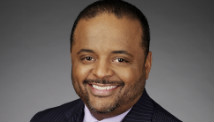GENEVA (Reuters) - United Nations investigators said on Monday that Syrian leaders they had identified as suspected war criminals should face the International Criminal Court (ICC).
The investigators urged the U.N. Security Council to "act urgently to ensure accountability" for violations, including murder and torture, committed by both sides in an uprising and civil war that has killed about 70,000 people since March 2011.
"Now really it's time ... We have a permanent court, the International Criminal Court, who would be ready to take this case," Carla del Ponte, a former ICC chief prosecutor who joined the U.N. team in September, told a news briefing in Geneva.
But because Syria is not party to the Rome Statute that established the ICC, the only way the court can investigate the situation is if it receives a referral from the Security Council. Russia, Assad's long-standing ally and a permanent veto-wielding member of the council, has opposed such a move.
"We cannot decide. But we pressure the international community to decide because it's time to act," del Ponte said.
Brazilian expert Paulo Pinheiro, who leads the U.N. inquiry set up in 2011, said: "We are in very close dialogue with all the five permanent members and with all the members of the Security Council, but we don't have the key that will open the path to cooperation inside the Security Council."
His team of some two dozen experts is tracing the chain of command in Syria to establish criminal responsibility and build a case for eventual prosecution.
"Of course we were able to identify high-level perpetrators," del Ponte said, adding that these were people "in command responsibility...deciding, organizing, planning and aiding and abetting the commission of crimes".
She said it was urgent for the Hague-based war crimes tribunal to take up cases of "very high officials", but did not identify them, in line with the inquiry's practice.
"We have crimes committed against children, rape and sexual violence. We have grave concerns. That is also one reason why an international body of justice must act because it is terrible."
Del Ponte, who tried former Yugoslav President Slobodan Milosevic at the International Criminal Tribunal for the Former Yugoslavia on war crimes charges, said the ICC prosecutor would need to deepen the investigation on Syria before an indictment could be prepared.
Karen Koning AbuZayd, an American member of the U.N. team, told Reuters it had information pointing to "people who have given instructions and are responsible for government policy, people who are in the leadership of the military, for example".
The inquiry's third roster of suspects, building on lists drawn up in the past year, remains secret. It will be entrusted to U.N. High Commissioner for Human Rights Navi Pillay upon expiry of its mandate at the end of March, the report said.
Pillay, a former ICC judge, said on Saturday Assad should be investigated for war crimes, and called for outside action on Syria, including possible military intervention.
Pinheiro said the investigators would not speak publicly about "numbers, names or levels" of suspects.
SEVEN MASSACRES IDENTIFIED
The investigators' latest report, covering the six months to mid-January, was based on 445 interviews conducted abroad with victims and witnesses, as they have not been allowed into Syria.
"We identified seven massacres during the period, five on the government side, two on the armed opponents' side. We need to enter the sites to be able to confirm elements of proof that we have," del Ponte said.
The U.N. report said the ICC was the appropriate institution for the fight against impunity in Syria. "As an established, broadly supported structure, it could immediately initiate investigations against authors of serious crimes in Syria."
Government forces have carried out shelling and air strikes across Syria including Aleppo, Damascus, Deraa, Homs and Idlib, the 131-page report said, citing corroborating satellite images.
"Government forces and affiliated militias have committed extra-judicial executions, breaching international human rights law. This conduct also constitutes the war crime of murder. Where murder was committed as part of a widespread or systematic attack against a civilian population, with knowledge of that attack, it is a crime against humanity," the report said.
Those forces have targeted bakery queues and funeral processions to spread "terror among the civilian population".
Rebels fighting to topple Assad have also committed war crimes including murder, torture, hostage-taking and using children under age 15 in hostilities, the U.N. report said.
"They continue to endanger the civilian population by positioning military objectives inside civilian areas" and rebel snipers had caused "considerable civilian casualties", it said.
George Sabra, a vice president of the opposition Syrian National Coalition, asked about the U.N. report, told Reuters at a conference in Stockholm: "We condemn all kind of crimes, regardless who did it.
"We can't ignore that some mistakes have been made and maybe still happen right now. But nobody also can ignore that the most criminal file is that of the regime."
(This story has been corrected to fix name of Milosevic tribunal in 11th paragraph)
(Reporting by Stephanie Nebehay; additional reporting by Anna Ringstrom in Stockholm; Editing by Mark Heinrich)

